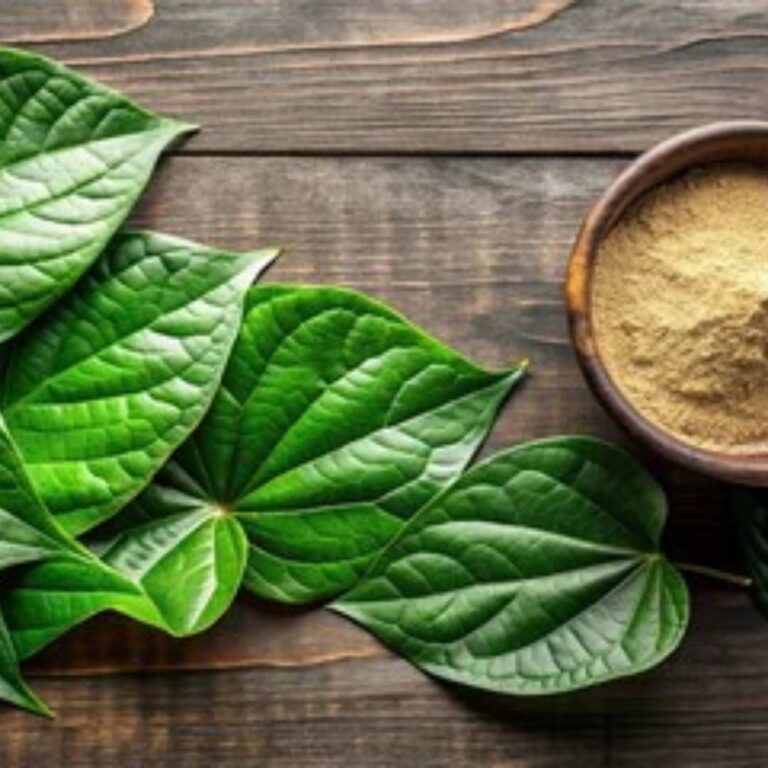More vendors enter the market with kratom because of its popular demand, yet several brands violate standard safety and quality criteria.
What some kratom companies resort to for increased profits includes selling tainted merchandise along with deceiving customers by making false statements while neglecting necessary lab tests, thus endangering their consumers.
A person who understands which kratom brands to shun will stay away from two unfavorable situations, including cost loss and wellness risks.
This article reveals the critical indicators that reveal unreliable vendors while presenting methods to locate trustworthy suppliers.
Any level of kratom experience can benefit from learning these warning indicators to make wiser shopper choices and prevent using low-quality and risky substances.
This piece explores the characteristics that indicate an unreliable kratom brand as well as ways to discover safe alternatives.
Understanding Kratom and Its Market
The traditional medicine Kratom derives from the Southeast Asian Mitragyna speciosa tree leaves, where people customarily use it as a mood booster and stimulant.
The market in Western territories has become increasingly interested in kratom as a natural supplement over the past years. Many countries lack proper product regulations, because of which vendors’ products diverge substantially regarding quality standards.
High-Quality vs. Low-Standard Kratom Vendors
Finding reliable information about “the best kratom vendors” while excluding “the worst kratom vendors” requires more effort than visiting Google search results alone.
Many kratom stores challenge each other through marketing tactics, while multiple brands insist their products deliver the maximum quality, thereby overwhelming potential customers with dense promotional materials.
The evaluation of a company’s true kratom quality proves to be quite difficult. The challenge of finding legitimate kratom brands becomes complicated since even vendors with an unflattering reputation receive good customer feedback.
We have designed this information to assist your search for the correct answer.
The following content distinguishes between good and bad kratom vendors using key indicators for identifying untrustworthy kratom brands.
How to select the kratom vendor
Our discussion regarding undesirable kratom brands begins with establishing why customers should seek reliable vendors dealing with this herbal product.
1. Expanding the Herbal Products Sector
The increase in American popularity of Kratom created strong interest among established and new companies to enter the kratom market. Businesses find the botanicals market extremely lucrative because analysts predict it will achieve $203.7 billion in value by 2032.
The growth of the kratom market has allowed consumers to select from numerous kratom vendors running into the hundreds. Multiple factors exist that cause different vendors to enter the kratom business.
2. Profit-Motivated Kratom Vendors
The current kratom market has become overcrowded with multiple new businesses, leading to diverse discernible characteristics between acceptable kratom brands.
The practices that bring quick profits are typically emphasized more by some kratom vendors instead of prioritizing customer well-being.
How do you tell which kratom vendors prioritize earnings over community support, since the market includes businesses that serve both purposes? What influence does the kratom brand selection have on customers?
Buy kratom mindfully because the choice of vendor proves particularly essential for your interests as a consumer.
As both a consumer and from a health point of view, there are multiple ethical grounds to support reputable brands. Investing in poor products that affect your long-term medical conditions does not benefit you financially.
Users of kratom become active catalysts who advance kratom law reforms while growing its awareness throughout the public. You can make your kratom purchasing decisions to support vendors that comply with regulations, although you might not directly participate in kratom politics.
3. Some Vendors Operate Outside Industry Standards and Regulations
The US legal status of kratom remains unclear to the large number of advocacy groups that support it.
Federal control of kratom by the Food and Drug Administration (FDA) would provide the perfect system of regulation. The FDA manages to establish product standards that every kratom vendor throughout the United States must follow.
The Food and Drug Administration has yet to ban kratom outside its approved category. The federal government has not established regulations for kratom, but legislative actions regarding its control have materialized during the past year. Each state government within the US determines how it will regulate kratom products.
The American Kratom Association shaped the Kratom Consumer Protection Act (KCPA) to provide regulatory standards that guarantee kratom consumer safety and confidence.
Two options exist for states to control kratom production through local versions of the Kratom Consumer Protection Act and through individual regulatory bills that share comparable oversight provisions.
The majority of states do not have any current regulations regarding kratom. Both consumers and vendors encounter difficulties when dealing with unstandardized oversight and regulatory systems for kratom.
Multiple states actively work to establish similar laws that will oversee the regulation of kratom. A kratom bill emerged in New Jersey during the spring of 2023 to implement regulations for state kratom products if it could successfully pass legislation.
4. Quality Kratom Suppliers Prioritize Regulatory Compliance
States across the nation have established laws that set quality criteria while improving transparency standards.
The quality standards include Good Manufacturing Practices (GMP) and third-party lab testing for quality, and essential labeling for product clarity have become mandatory. The purchase of kratom remains limited to adults older than eighteen or twenty-one, as per state regulations.
Consumer safety increases because quality laws and enforcement protect people from unreliable or deceptive kratom distributors.
Consumers living in unregulated kratom territories should carefully choose their vendors since they might not practice proper quality control procedures.
Vendors must bear the expenses of added safety measures, so they need to pass on higher costs to their products. Although lower pricing can appear favorable to customers, the absence of quality management produces major problems.
Some problematic vendors have intentionally added foreign substances to their products to modify effects, as well as supply products containing non-kratom fillers for reduced costs.
The entire kratom community, together with individual users, achieves better outcomes from decreased circulation of both inferior and low-quality kratom products.
Select vendors who take voluntary measures to establish self-regulating standards for their kratom products, even when kratom remains unregulated in their state.
Kratom Vendor Red Flag
Identifying unreliable kratom vendors is essential for ensuring product safety and efficacy. Here are some common red flags:
1. Lack of Third-Party Lab Testing
Verifying the purity and potency of products becomes possible through the third-party lab tests given out by legitimate vendors. Failing to show such testing indicates unspecified product transparency alongside potential safety hazards.
2. Vague Product Information
Vendor operations that conceal crucial product information, such as sourcing region or strain type, or alkaloid percentage, usually try to hide insufficient product quality and volatile supplier standards.
3. Unrealistically Low Prices
Substandard quality may originate from overpriced products because extremely low prices often indicate adulteration or inadequate product processing methods.
4. Negative Customer Reviews
The reliable performance of a vendor becomes evident through a continuing flow of negative feedback about product quality and customer service, and delivery-related complaints.
5. Absence of Clear Return Policies
Competent suppliers generally provide specific guidelines about returns and refunds to their customers. Companies that fail to establish such policies might indicate their unwillingness to handle customer complaints.
How to Select a Trustworthy Kratom Vendor?
Choosing the right vendor involves careful consideration of several factors:
1. Transparency and Information
Users should choose vendors that explain everything from their supply chain to production processes and laboratory testing outcomes.
2. Certifications and Compliance
Look for vendors that adhere to industry standards and possess certifications from recognized organizations, indicating a commitment to quality and safety.
3. Positive Customer Feedback
Vendor reliability as well as product quality become evident when customers give consistently strong reviews through multiple platforms.
4. Responsive Customer Service
The mark of an excellent vendor consists of excellent communication skills and immediate support for customers.
5. Ethical Sourcing Practices
The sustainable quality of the kratom marketplace depends upon vendors who focus on responsible sourcing practices.
Final Thoughts
The selection of kratom retailers requires careful judgment alongside adequate research for multiple reasons. People who look for warning signs along with vendor quality criteria will find better options to purchase kratom while promoting ethical consumerism in the industry.
The selection of a kratom vendor must always come after a thorough review of transparency levels and quality assurance measures, and customer feedback standards.
Also, see:





